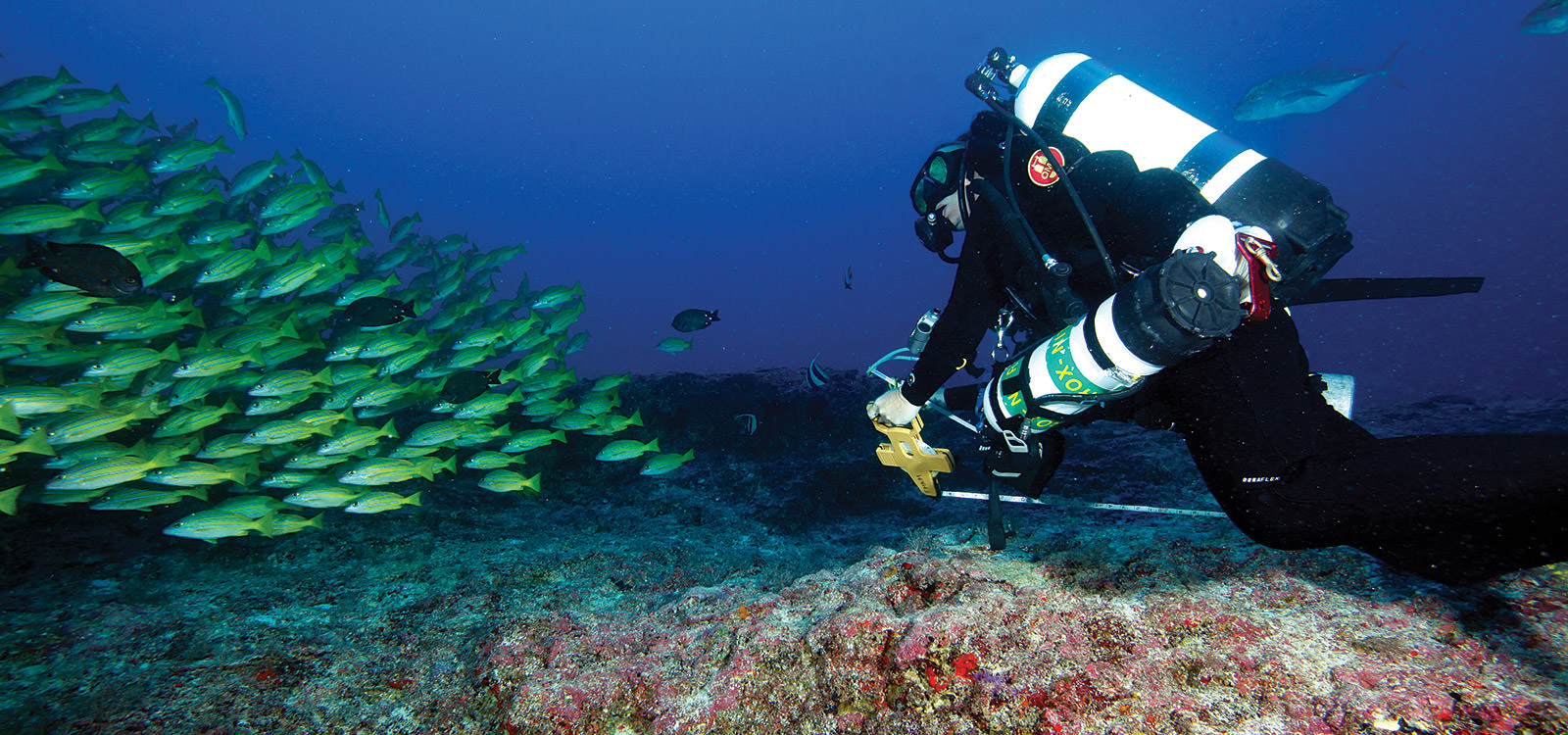Making Connections: Dr. Cori Kane

Dr. Nancy Foster Scholar Dr. Cori Kane first got acquainted with Papahānaumokuākea Marine National Monument when working as a researcher for the state of Hawai‘i. Intrigued by the lush coral reefs of the Northwestern Hawaiian Islands, she undertook a Ph.D. at Washington State University under the mentorship of Dr. Randy Kosaki, monument deputy superintendent. Today, with support from NOAA's Office of National Marine Sanctuaries, she researches deep reefs in Papahānaumokuākea and in the main Hawaiian Islands. This is her Story from the Blue.
Diving in Papahānaumokuākea Marine National Monument is like the Wild West. In the main Hawaiian Islands, fish avoid people, but in the Northwestern Hawaiian Islands that behavior doesn't exist. When you drop in and you make noise, everything is actually attracted to you. It's a huge role reversal from every situation I've ever been in.
When you go to protected places like Papahānaumokuākea, it's an entirely different world.
When you go to protected places like Papahānaumokuākea, which have not had massive disturbance, it's an entirely different world. Organisms there are much bigger than they are in the main Hawaiian Islands and the fish diversity and biomass is greater. We'd be in some areas where every single fish we saw in a transect was native to Hawai‘i and found nowhere else. Hawai‘i has some of the highest numbers of native fishes in the world – but usually you'd only see 20 to 25 percent native fishes.
My favorite thing out there is seeing the large schools of ulua. They're these big, four- or five-foot fish that come in, and then everything else disappears – they're on the top of the food chain. They'll check you out and swim right next to you. They're naturally curious. Usually in the water you feel like you're the top dog, but in the monument, you're being investigated. When I'm out there, I feel like I'm being researched as much as I'm researching the environment.

While exploring Papahānaumokuākea, I found that fish that I'd see really commonly at 20 and 30 feet were somehow down in 150 and 200 feet, a completely different environment. My research now is looking at how deep and shallow reef fish are related. Some of my work has been looking at one specific group, parrotfishes, which are an important food source in Hawai‘i. There have been reports that there are parrotfish in the deep reefs, but we've actually found that that's entirely opposite – they are pretty much absent once you get below 40 meters. The idea of this universal refuge area that's inherently protected because no one goes there doesn't work, at least for this major food fish in Hawai‘i. More and more we're finding that the deep reefs are important as safe houses for maintaining biodiversity, but not necessarily for repopulating food fish that are in shallow areas.
Besides the research, I've talked a lot to neighborhood and community associations, done volunteer fair days, spoken with fishermen. Working with Native Hawaiian communities has been some of the most rewarding work, too. Usually traditional and Western knowledge are considered separately, and we've been collaborating to break down some of the barriers. Western science builds on the knowledge Hawaiian ancestors already knew.
Obviously I'm biased, but I think I have the best job in the world. It's important to find something you're passionate about. The biggest thing I tell undergraduate students is just to get outside. It doesn't matter if you're near an ocean or not. I'm not near an ocean ten months out of the year, but getting outside and looking at nature if you want to be an ecologist is integral. I can ask similar questions in the forests of Washington and Oregon as in the ocean in Hawai‘i. It's all about the questions and having an interest.


